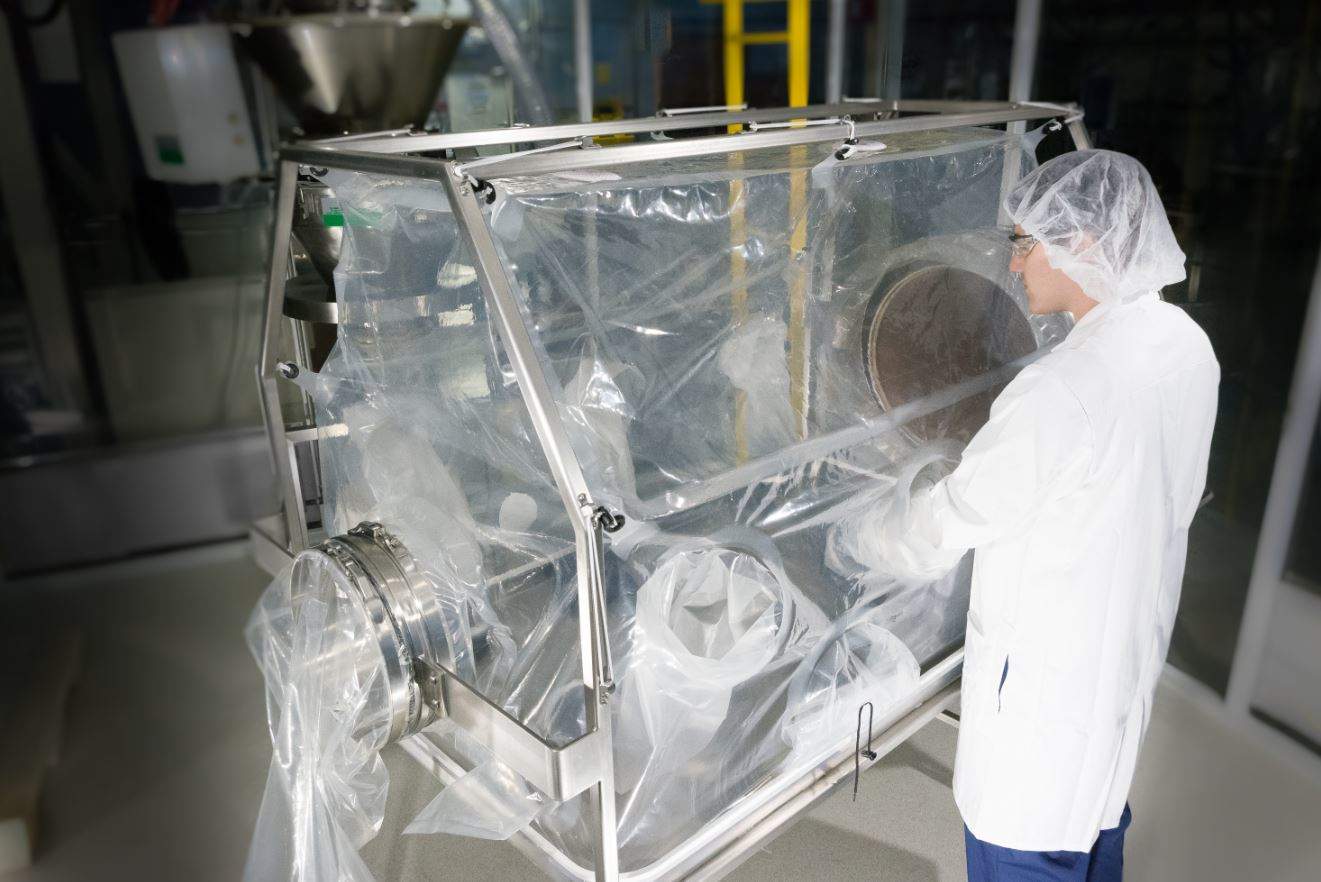
High potency active pharmaceutical ingredients (HP APIs) are the fastest growing segment of the API market. This is mainly due to the growing use of these compounds to combat cancer. As the field grows the compounds are becoming even more potent which means any exposure to them can be very dangerous.
There is more regulatory pressure to reduce cross contaminating and cleaning. With new improved detection methods, we now know that there is no such thing as perfectly clean.
In order to do that, manufacturers must ensure that HP APIs are effectively contained down to the lowest possible levels.
Flexible isolators are a possible solution. These glove bags, pioneered by pharmaceutical containment solution manufacturer ILC Dover, offer nanogram containment levels in line with the International Society for Pharmaceutical Engineering’s Standardised Measurement of Equipment Particulate Airborne Concentration (SMEPAC) guidelines. Once you are done with a process the isolator can safely be disposed and a new one can be used for the next project.
Flexible isolators provide a way for plant workers to interact with dangerous materials without actually being exposed to these chemicals. ILC Dover isolators are fitted with glove sleeves that provide access to materials, as well as to any panels or buttons that might also be contained during the process.
These solutions also have bag in/bag out sleeves, allowing isolators to connect together to facilitate the transfer of powders between equipment and areas without leaving this contained environment.
Made from ILC Dover’s specially formulated ArmorFlex film, flexible isolators promise visual clarity without compromising on containment effectiveness. ArmorFlex has been extensively tested to ensure that it can cope with strain and withstand a beating, minimising the risk of abrasion and punctures during the manufacturing process.
ILC Dover flexible isolators: A cost-effective way to upgrade your plant and maximise containment
Containment is an important part of pharmaceutical manufacturing. Failure to effectively contain ingredients, particularly high potency ingredients, can lead to contamination of other products or equipment. It also poses a significant risk to the health of both workers and those that use products that are manufactured in the plant. Not only can this significantly harm the reputation of the manufacturer and its brands, but it is also an expensive situation to rectify.
In order to safeguard against contamination, pharmaceutical manufacturers are bound to comply with the rules set out by regulatory agencies like the US Food & Drug Administration (FDA). Failure to comply with regulations like the Current Good Manufacturing Practice (cGMP) can result in hefty fines, product recalls and plant shutdowns.
The cost of refitting a plant to improve containment can be costly. However, flexible isolators provide an effective way to upgrade old systems to comply with new rules and requirements.
Rather than purchasing new, high-containment equipment, flexible isolators can be placed around old equipment to bring them up to standards. Retrofitting old equipment with ILC Dover solutions produces nanogram containment levels without the astronomical costs of refitting.
These solutions can be used to effectively enclose small powder handling equipment, such as mills, sieves and blenders, providing constant containment during processes such as blending, milling, tableting, weighing and subdividing.


